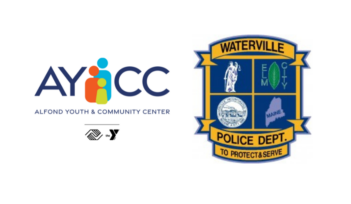Restorative Justice & Practice Program
Empowering Youth for a Brighter Future

What is Restorative Justice?
Restorative Justice is a philosophy of justice that focuses on repairing the harm caused by a crime rather than punishing the offender. It involves bringing together the victim, offender, and community to work to address the needs and concerns of all parties involved. This approach seeks to build relationships, foster empathy, and promote healing, forgiveness, and reconcilliation. Restorative justice programs take many forms such as victim-offender mediation, community service, and restorative circles.
The Restorative Justice & Practice Programs are a collaborative initiative between the the Alfond Youth & Community Center and the City of Waterville Police Department.
By incorporating preventative measures alongside these 6-core areas, restorative practices can create a more peaceful and positive environment for everyone.
Two programs that our teens participate in weekly are:
- Teen Strength & Conditioning – Mon, Wed & Fri from 2:30-5:00 pm
- Homework Help – Tues & Thurs from 2:30-4:30 pm
6-Step Focus: 12 Month Period
Step 1 - Empowering Participation
Months 1 & 2
This area focuses on giving everyone a voice in the community and encouraging active participation in resolving conflicts and making decisions. Practices include:
- Circle Processes
- Classroom Meetings
- Peer Mediation Programs
Step 2 - Building Stronger Communities
Months 3 & 4
Focusing on fostering a sense of belonging, connection, and shared responsibility within a community. Practices include:
- Greetings
- Team-Building Activities
- Cooperative Learning
- Social-Emotional Learning
Step 3 - Repairing Harm
Months 5 & 6
Addressing the impact of conflict involves facilitated dialogues to understand harm and work towards repair through:
- Apologies and Forgiveness
- Reconciliation and Restitution
- Community Service
Step 4 - Transforming Relationships
Months 7 & 8
Healing broken relationships and fostering empathy and understanding. Practices include:
- Victim-Offender Dialogues
- Circle Processes
- Mediation Techniques
Step 5 - Strenghthening Accountability
Months 9 & 10
Taking responsibility for actions and their consequences. Practices involve:
- Setting Clear Expectations
- Reflect on Choices
- Developing Restorative Consequences that Focus on Repair Rather than Punishment
Step 6 - Preventing Conflict
Months 11 & 12
This area focuses on proactive strategies to prevent conflict from arising in the first place. Practices include:
- Communication and Problem-Solving
- Fostering a Climate of Respect and Understanding
This could involve teaching students how to identify early warning signs of conflict and providing them with tools to de-escalate situations.
Mission Statement
To empower individuals and communities to build relationships, heal from harm, and create a positive change through restorative practices.
